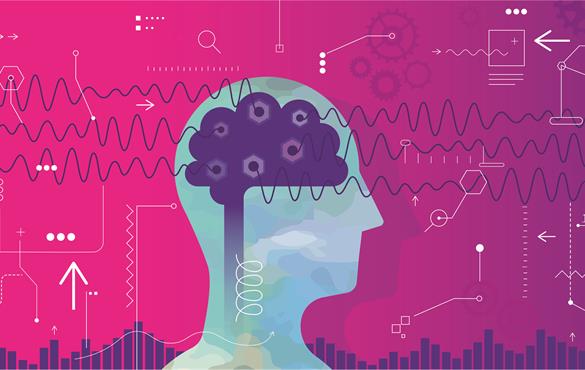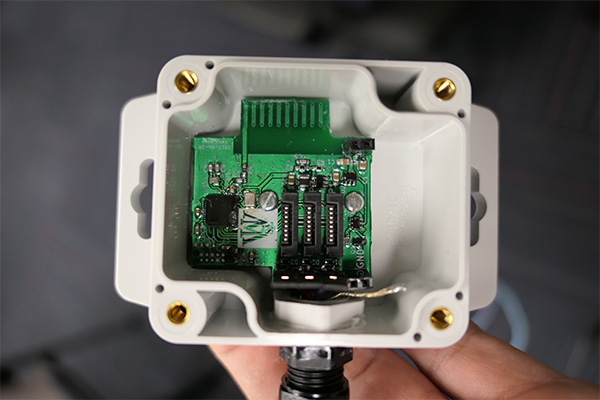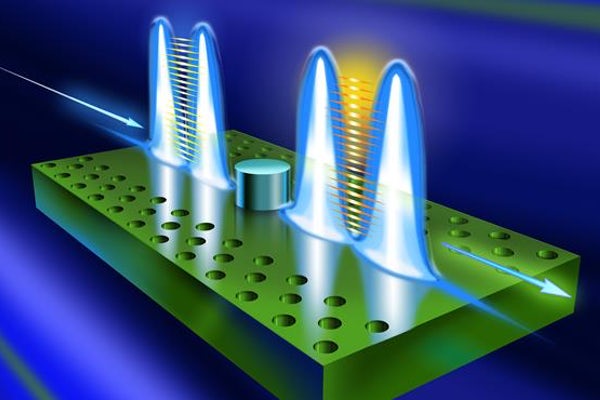It's easy to start your application.
Undergraduate Programs
Concentration Areas

The Department of Electrical & Systems Engineering offers courses across a broad range of topic areas. Concentration areas of study provide students with a critical level of expertise in a particular domain within ESE, preparing the student for a wide range of career opportunities. Furthermore, it allows them to pursue graduate studies in engineering and applied science research.
Suggested example courses within several areas are listed below. To ensure courses fulfill the requirements for your degree or program, consult the Bulletin.
For planning your degree, review the Curriculum Flowchart, which maps degree requirements for our BS degrees in Electrical Engineering and Systems Science and Engineering.
Devices and Circuits
Devices & Circuits
Faculty in this area study nanoelectronics and emerging devices, sensors and sensing systems, and cyber-physical systems.
- ESE 431: Introduction to Quantum Electronics
- ESE 436: Semiconductor Devices
- ESE 461:Design Automation for Integrated Circuit Systems
- ESE 562: Analog Integrated Circuits
- ESE/CSE 362: Computer Architecture
- ESE/CSE 462: Computer Systems Design
Optics and Photonics
Faculty in this area focus on topics in advanced materials, integrated photonics and optoelectronics, nano-fabrication, and new device concepts.
- ESE 429: Basic Principles of Quantum Optics and Quantum Information
- ESE 438: Applied Optics
- ESE 531: Nano and Micro Photonics
- ESE 582: Fundamentals and Applications of Modern Optical Imaging
Quantum Engineering
- ESE 429: Quantum Optics and Quantum Information
- ESE 431: Introduction to Quantum Electronics
- ESE 439: Introduction to Quantum Communications
- ESE 532: Introduction to Nano-Photonic Devices
- ESE 536: Introduction to Quantum Optics
Imaging/ Signal Processing
- ESE 417: Introduction to Machine Learning and Pattern Recognition
- ESE 471: Communications Theory and Systems
- ESE 482: Digital Signal Processing
- ESE 488: Signals and Communication Laboratory
- ESE 520: Probability and Stochastic Processes
- ESE 582: Fundamentals and Applications of Modern Optical Imaging
- ESE 589: Biological Imaging Technology
Control, Cyberphysical Systems (CPS) and Internet of Things

Our faculty within the department study, design, develop, manage and optimize complex systems including electrical systems, information systems, quantum systems and telecommunication networks.
- ESE 444: Sensor and Actuators
- ESE 446: Robotics: Dynamics and Control
- ESE 471: Communications Theory and Systems
- ESE 551: Linear Dynamic Systems I
- Math 429: Linear Algebra
Dynamics and Data
- ESE 415: Optimization
- ESE 482: Digital Signal Processing
- ESE 520: Probability and Stochastic Processes
- Math 429: Linear
Optimization and Theory of Learning
- ESE 404: Applied Operations Research
- ESE 415: Optimization
- ESE 417: Introduction to Machine Learning and Pattern Recognition
- ESE 519: Convex Optimization
- Math 429: Linear Algebra
Suggested Physics Courses
Suggested courses from the Physics department are listed below, suitable as Engineering and Science Breadth requirement for Electrical Engineering students and Outside Concentration courses for Systems Science & Engineering students.
- Physics 361: Optics and Wave Physics Laboratory
- Physics 322: Physical Measurement Laboratory
- Physics 350: Physics of the Brain
- Physics 354: Physics of Vision
- Physics 360: Biophysics Laboratory
- Physics 427: Introduction to Computational Physics
- Physics 472: Solid State Physics


